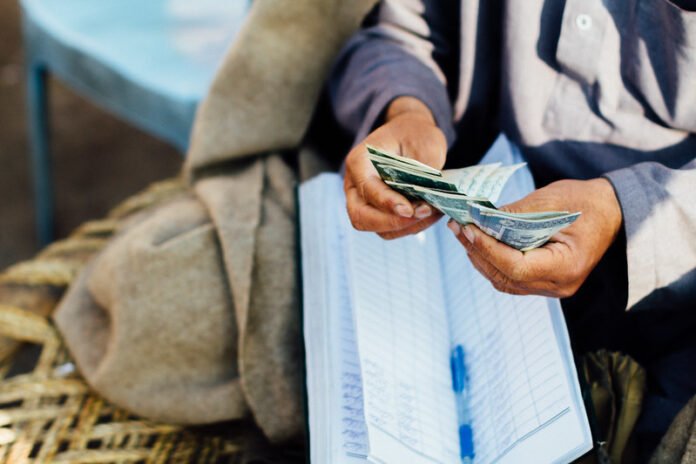Pakistan’s Economic Challenges and the Role of JazzCash in Financial Inclusion
Pakistan is currently grappling with significant economic challenges, with a staggering portion of its population living in poverty. As of 2024, the poverty rate has surged to 25.3%, marking a sharp increase from the previous year and adding approximately 13 million people to the ranks of the impoverished. This alarming trend is exacerbated by financial exclusion, particularly among women. In 2021, only 13% of women had access to formal bank accounts, compared to 34% of men, highlighting a significant gender gap in financial inclusion.
JazzCash’s Role in Financial Inclusion
JazzCash, one of Pakistan’s largest digital financial services platforms, has emerged as a key player in addressing these economic challenges. Launched in 2012 by the mobile operator Jazz, JazzCash has amassed 44.4 million customers and has been instrumental in digitalizing Pakistan’s economy. The platform promotes financial inclusion, expands economic participation, and aims to reduce poverty through innovative financial solutions.
Through partnerships with organizations like U.N. Women and the Sindh Flood Emergency Rehabilitation Project, JazzCash has introduced microloans, mobile banking, and digital finance solutions that empower underserved communities. By leveraging fintech innovations, JazzCash provides secure, efficient, and accessible financial services to millions of Pakistanis who previously lacked access to banking.
Key Initiatives by JazzCash
Here are four pivotal initiatives by JazzCash that illustrate how fintech innovations in Pakistan are reducing poverty through economic growth and financial inclusion:
Empowering Women Through Digital Finance
In a landmark 2022 partnership with U.N. Women, JazzCash committed to supporting 10,000 women micro-entrepreneurs by providing mobile wallets, free SIMs, and data bundles by 2025. This initiative not only equips women with digital tools but also offers financial literacy training, ensuring they gain the knowledge and confidence to effectively utilize fintech services for business growth and financial independence. With women comprising only 21% of Pakistan’s workforce, increasing their economic participation is crucial for both gender equality and overall economic growth.
The initiative aligns with the U.N. Sustainable Development Goal 5 (Gender Equality) and aims to broaden poverty reduction by expanding economic opportunities for women. By November 2024, JazzCash announced plans to increase the number of women-led businesses using its platform from 100,000 to 300,000 by 2027. This effort not only helps close the financial gender gap but also fosters greater economic independence for female entrepreneurs.
Supporting Disaster Relief Through Fintech
The Sindh Flood Emergency Rehabilitation Project (SFERP), a collaboration between JazzCash and the Government of Sindh, has been pivotal in delivering financial assistance to families affected by the devastating floods in 2022 and 2024. As of May 2024, JazzCash has disbursed PKR 2 billion to flood-affected families, with a goal of reaching PKR 15 billion and assisting 1 million households. Notably, 80,000 new mobile wallet accounts have been created, with 45% of account holders being women.
Traditional relief programs often rely on cash-based assistance, which can lead to delays and inefficiencies. By offering direct digital transfers, JazzCash provides a more inclusive, transparent, and secure alternative, enabling families to rebuild independently and participate in the economy after disasters.
Expanding Social Protection Through Digital Payments
In February 2024, JazzCash became a key partner in the Benazir Income Support Program (BISP), Pakistan’s largest poverty reduction initiative. BISP provides unconditional cash transfers to underserved communities, including 9 million women, serving as a critical social safety net for the nation’s most vulnerable populations. JazzCash’s digital disbursement system ensures secure and efficient delivery of PKR 78 billion in cash payments to 1.3 million women by the end of 2025. By November 2024, JazzCash had already successfully transferred PKR 15 billion, showcasing the effectiveness of fintech in expanding financial accessibility.
Beyond facilitating direct aid, this initiative promotes long-term financial inclusion, encouraging women to open digital bank accounts, save money, and engage in economic activities that lead to greater financial independence.
Microfinance and Entrepreneurship
JazzCash is also committed to promoting economic inclusion through microfinance, enabling entrepreneurs and small businesses to access capital, process digital payments, and expand their operations. Small business owners, particularly in rural and underserved communities, often face significant barriers to accessing credit and banking services. JazzCash’s microfinance solutions provide secure and efficient financial services, allowing entrepreneurs to scale their businesses, create jobs, and contribute to economic growth.
Looking Ahead: The Future of Fintech in Pakistan
As fintech adoption continues to expand, JazzCash remains dedicated to bridging financial gaps and empowering underserved communities. CEO Aamir Ibrahim has set a target to increase the female customer base from 30% to 50%, ensuring that women gain equal access to financial tools. With the ongoing integration of financial services into daily transactions, JazzCash is shaping a more inclusive economy where digital finance drives economic participation and poverty reduction in Pakistan.
Expanding financial literacy programs—such as those introduced through the U.N. Women partnership—could be essential in helping more Pakistanis navigate digital finance effectively. By leveraging fintech for economic empowerment, JazzCash is paving the way for sustainable economic growth and greater financial inclusion across Pakistan.
Oliver Tanner is based in London, UK, and focuses on Technology and Politics for The Borgen Project.

